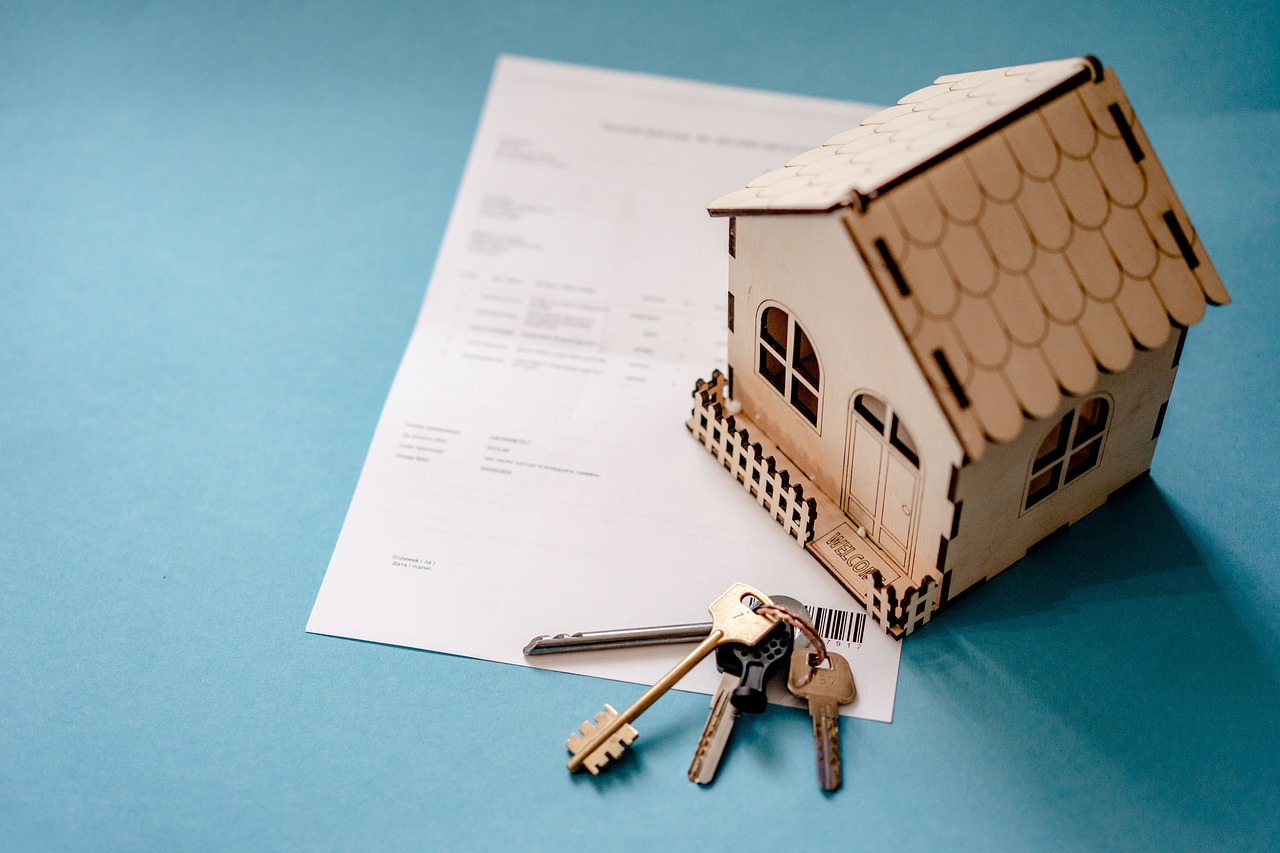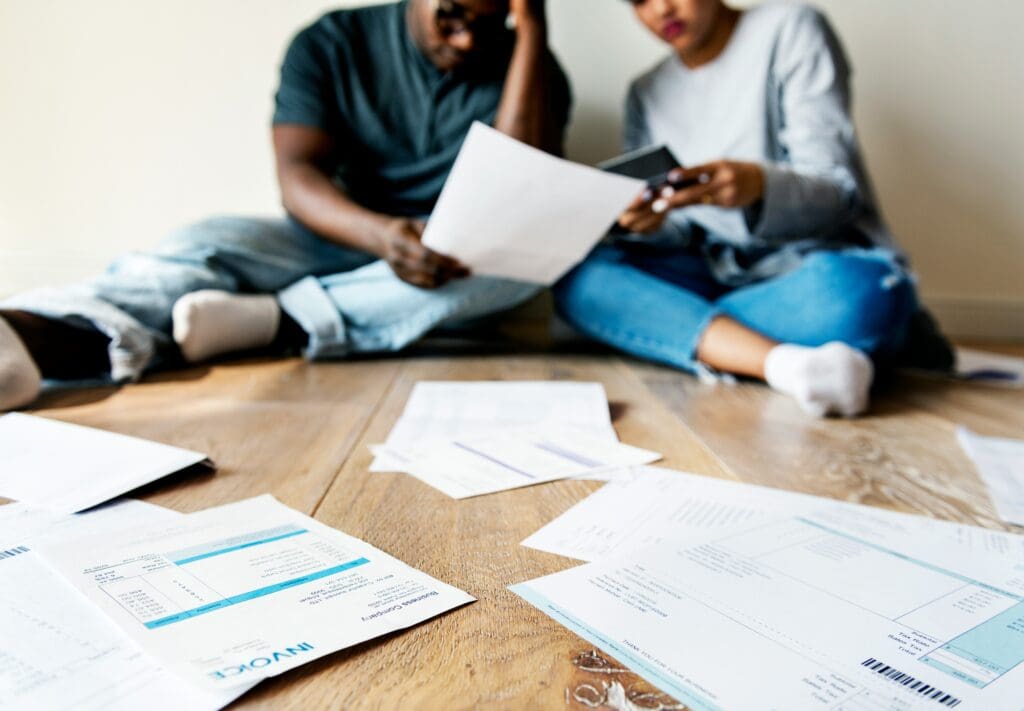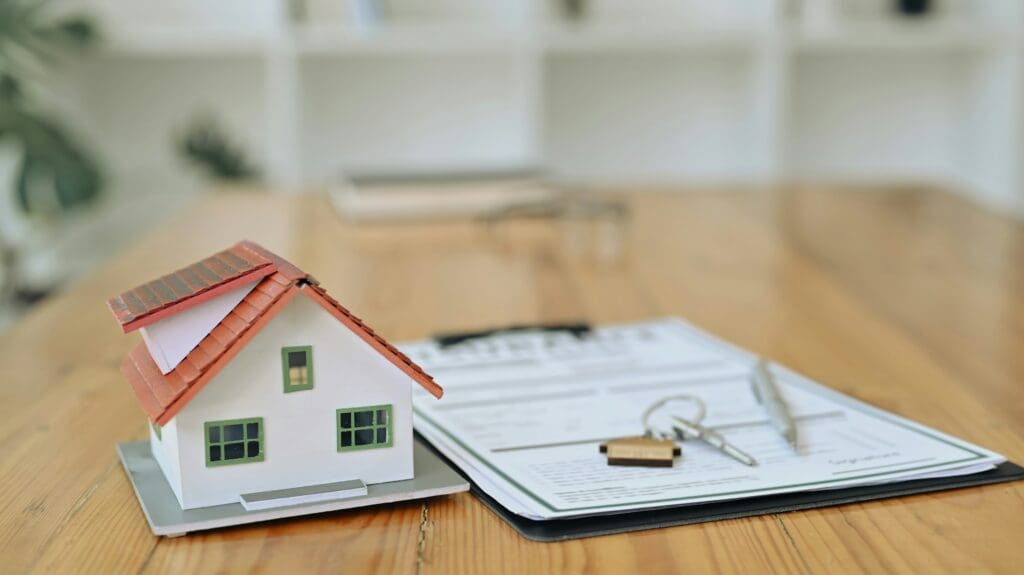Can I Sell a House with a Mortgage?

Estimated reading time 9 minutes
According to data from the Financial Conduct Authority, there were over £1,655.50 billion of outstanding mortgages at the end of Q2 2023, showing that more or less all homeowners have one. If you are one of that number, and decide it is time to move home though, how does having a mortgage affect your chances to sell your current property?
Could you even sell your house if it has a mortgage outstanding on it? Luckily the answer is yes, and in this edition of our blog, we look at how it can be done.
Can you sell a house with a mortgage?
Yes. In fact, most properties still have a mortgage outstanding on them when they get listed. And, when sold, the mortgage either gets paid off or ported. Which option you choose depends on your circumstances, and the terms and conditions of your mortgage agreement. It also pays to have a good understanding of the current market before deciding whether it is the right time to sell.
You can sell your property and with it, clear the outstanding balance of your mortgage. Any profit you make can then be used towards the purchase of your next home.
Alternatively, you can port. This is where you move the mortgage deal you currently have onto a new property. The sale of your current home clears the outstanding mortgage and then you use, essentially the same mortgage again, to start paying for your new home.
You could even remortgage if necessary. This is especially worthwhile if the new home is likely to require a bigger mortgage.
All options are quite common, you should just check with your lender or a financial advisor what the best options for you may be at the time you come to sell.
There are two key things to consider though.
- If you are paying off your mortgage in full and not buying another home, you must make sure that the sale price of the property is higher than the amount remaining on the mortgage.
- If you have fallen into negative equity, selling may not be the best option. You could find yourself in a more precarious financial situation. Your property will be worth less than the mortgage you took out so you will owe the bank money even after selling the home.
How to sell a house with a mortgage
Before committing to sell, you should find out how much is left on your mortgage. Your lender will want to recoup the money they let you borrow, so have the home valued. This will give you an idea of how much you can sell for, and whether it will cover the outstanding balance. If it does not, you should speak to your lender.
If you still need the sale to go through, yet the funds from it do not cover the mortgage, you will find yourself in a mortgage shortfall. If you plan to buy another property, you could find legal action is taken against you.
What happens when you sell a house with a mortgage?
A few things could happen to your mortgage when you sell. It could be cleared, moved, or remortgaged.
Each mortgage agreement will have specific terms that you are bound to. This will include payment terms, interest rates, early repayment fees, and whether it is portable or not.
When you sell your home, it is important to know what the terms of your current mortgage are. If you decide to pay it off early you could be facing additional charges that could equate to as much as 5% of the remaining mortgage balance. A potentially costly start to purchasing your new home.
If you want to port it, you will need to see if the current agreement allows that to happen. A lender that granted you the mortgage to buy the initial property, may not necessarily be willing to allow mortgage porting.
In summary, when selling a home, your mortgage is paid off with the funds raised from the sale. The solicitor will handle this and transfer the buyers’ funds to your lender. Then should you need a mortgage for your new home or look to port your existing one, you will apply as normal.
Do I need a new mortgage when moving house?
If you want to port your mortgage or are unable to port it, you will need to apply for a new one. The funds from your sale acting as your deposit if needed. As we mentioned above, with your existing mortgage being paid off by the sale of the property, you could find yourself being charged an early repayment fee if you have not been in the property for a long time, or are benefiting from an introductory interest rate offer.
What is mortgage porting?
We’ve touched upon mortgage porting a little already but let’s take a more in-depth look so you can see if this is the best option when you sell your home with a mortgage.
Many mortgages these days are portable. This means you can take the same mortgage product you initially had and use it for the purchase of the new property. This is a fantastic way to save the time and money that organising a new mortgage takes up. What’s more, if the mortgage rates are currently unfavourable, using the same deal you had originally saves you even more cash.
The steps to port a mortgage are much like a mortgage switch.
- Apply for your new mortgage.
- Pass affordability checks.
- Have the property you plan to purchase valued.
- Upon completion of the sale of your home, the mortgage loan on that property is cleared and the mortgage lender starts you up on a new loan for the same amount and on the same terms as the initial mortgage. Should additional funds have been needed, you may find that part of the mortgage is under your ported terms and the remaining loan is under completely different terms.
Will I be able to port my mortgage?
In most cases, yes. A lender would rather keep your custom than lose it. However, some factors could see them decide that porting your mortgage is not in their best interest.
- You may have a poor payment history. If you have stalled on payments in the past and have built somewhat of a track record for late payments or missed payments, the lender may not wish to keep your customer anymore. You could be seen as a high-risk borrower and not someone they would feel happy lending to.
- You do not meet the lending criteria. Despite the mortgage being the same, it is still a new loan. You will need to supply proof of income, proof of outgoings and your current employment status among many other things. Even though you may have a great payment history and are in a better financial situation than before, you may not qualify for the same mortgage deal you initially had.
- The home you wish to buy may not be deemed suitable. A lender will ensure the property is valued to see if their loan is justified. Should the property be in an uninhabitable condition, have a short lease or have signs of subsidence, Japanese knotweed or other property ailments, the lender could deem the property unsuitable for a mortgage.
Check out our guide, How Much Does Subsidence Devalue a Property, for more information on subsidence.
How long after getting a mortgage can you sell a house?
Much like the terms and conditions of your mortgage agreement, it all depends on the lender. In most cases, you must wait at least six months until you can sell. This is due to specific rules around lending. Many lenders do not allow loans to be granted on property that has been registered with the Land Registry for less than six months. However, should you be in urgent need of a fast sale, a cash house buyer could be your best option. This way, you get a quick sale and do not require the buyer to obtain a mortgage to purchase the home.
Advantages of selling a house with a mortgage
Selling a property with a mortgage is extremely common and is how most property sales go through. Key advantages to selling a house when you still have a mortgage include:
- If you have fallen behind with your mortgage, a quick sale could help you clear the debt and avoid a repossession.
- A change in personal circumstances could mean that your current home is no longer affordable. You could sell it, clear the mortgage with the sale proceeds and then use the profit to purchase a cheaper mortgage on a more affordable mortgage.
Disadvantages of selling a house with a mortgage
Of course, disadvantages are apparent too. If you choose to sell your home whilst there is still a mortgage outstanding on it you could see the following happen:
- If you are unable to pay your lender, you will find yourself in a mortgage shortfall. This can have huge financial implications and see you spending lots on legal costs among other things.
- If you have been forced into a quick sale due to current financial problems, you will likely see that your house sells for much less than you would have got for it otherwise.
- Even if you manage to secure another home, you will still be responsible for the mortgage payments on the other property until the moment it is sold.
You can avoid the slow sales process that your home may encounter by choosing Bettermove. We sell your house fast so you can have funds with you in as little as seven days. Ideal if you are facing repossession, are behind on your mortgage payments or need a quick relocation due to a change in personal circumstances. With a realistic asking price that ensures we never over-promise and under-deliver, your property is either purchased directly by us, or put in front of a series of property-savvy investors. With no fees to worry about either, you can sell your house for free, saving you the expense property selling is known for. Contact our sales team today so we can get your property sold fast.



